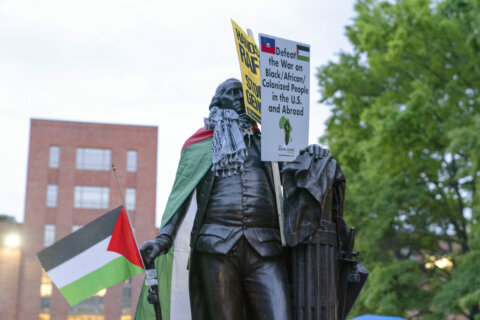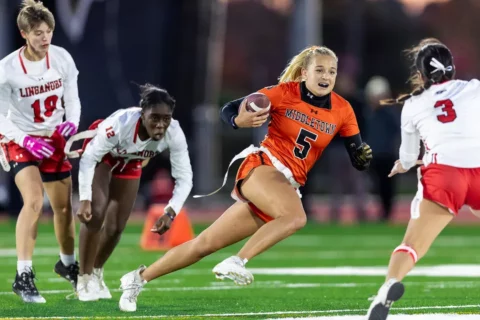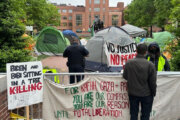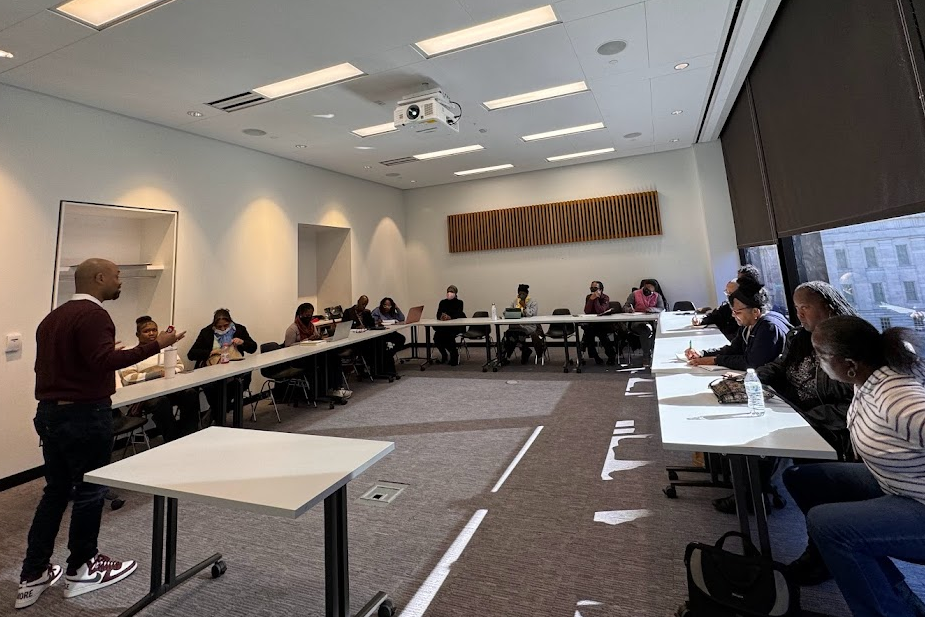
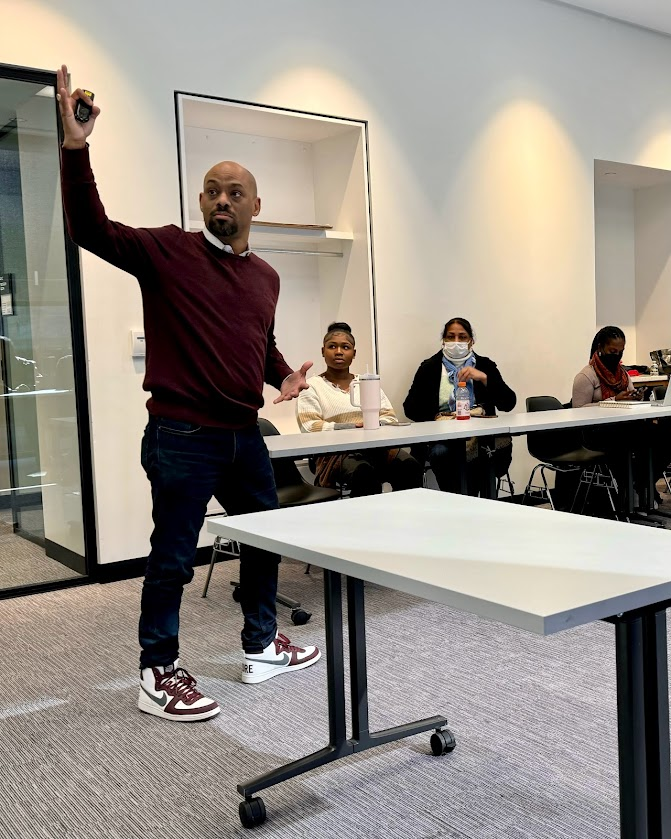
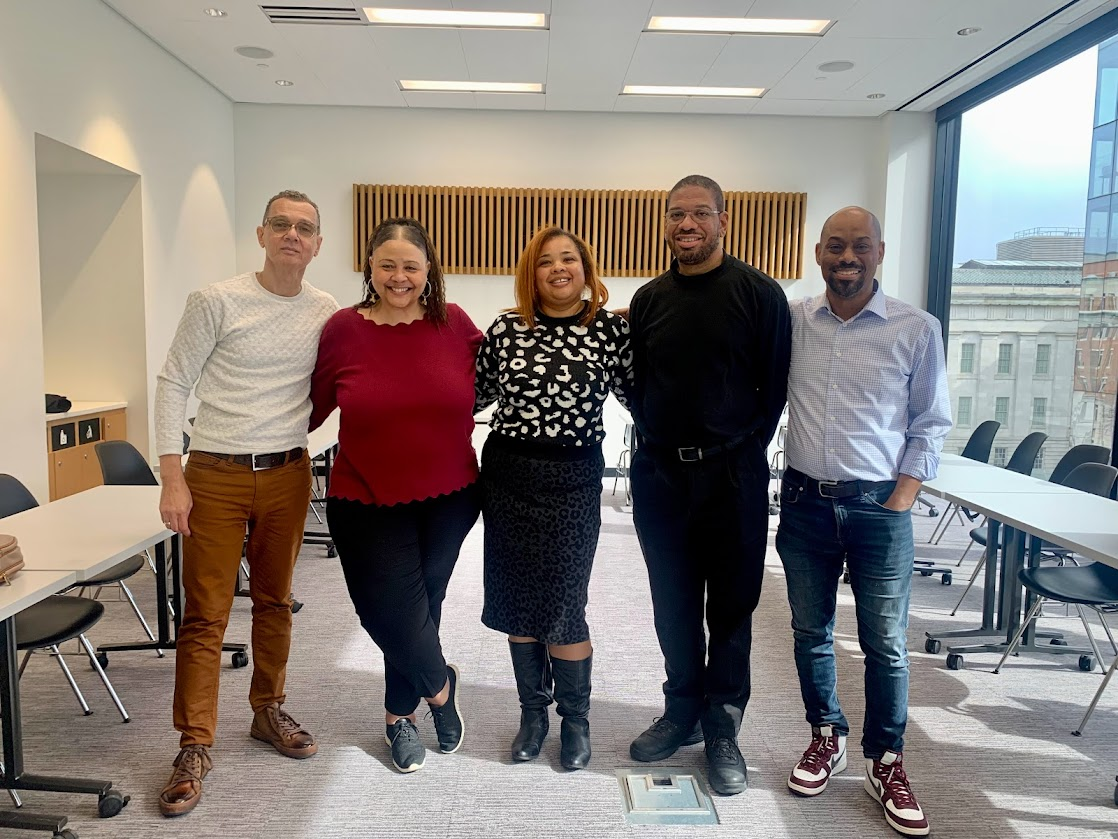
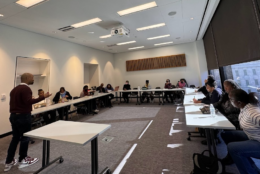
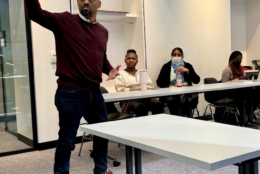
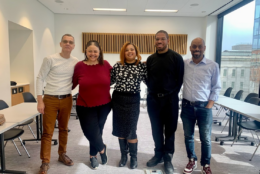
Throughout February, WTOP is celebrating Black History Month. Join us on air and online as we bring you the stories, people and places that make up our diverse community.
By day, Andre Kearns is a marketing director for Amazon Web Services. But when he’s not on the job, he’s untangling family histories — his own and other people’s.
Kearns is a genealogist and a member of the board of the National Genealogical Society.
Currently, he’s leading a series of workshops at the Martin Luther King Jr. Memorial Library in the District of Columbia. The title, “Black History Revealed: Navigating African American Genealogy and Celebrating Family Legacies,” helps describe the challenges of delving into family histories that may or may not provide clear avenues to the past.
Kearns explained, “We’re facing these brick walls with tracing our ancestors because of slavery.”
But Kearns offers encouragement and told WTOP he has found success in his own quest to learn more about his family.
“I’ve been researching my family tree for 18 years now,” he said, “I’ve traced my own family roots back to as early as 1619,” when the first Africans arrived in Colonial Virginia.
In his workshops, Kearns outlines a four-step approach to the process of digging up family roots.
The first step, said Kearns, is to create the family tree, documenting what you have. Number two, talk with family members, especially the elders in your family, “to gather the family oral history to incorporate into your family tree.”
Next, he said, use “traditional records, where your family may be documented and recorded,” like birth certificates, death notices, county and state records. A fourth strategy includes taking advantage of DNA testing “for clues.”
“There’s this notion that if you have enslaved ancestors that it’s difficult or impossible to find enslaved people,” but he said, “that’s not true. There are tons of types of records where you can research enslaved people.”
Family Bibles are often the source of lots of valuable information and clues, said Kearns.
More information can be found in plantation records, said Kearns. “And then there are the family papers of enslavers that may have a lot of documentation,” he added.
There are also federal records with information, including something called a “slave schedule.” The United States Census website explains that for the first time in 1850, free persons were listed individually instead of by family grouping, and enslaved people were documented in a separate census. More information can be found in wills, estate records and deeds, said Kearns.
And, Kearns notes, “People come from thousands of miles to come to Washington, D.C. to visit the Library of Congress, to visit the National Archives. We’ve got a lot of tremendous research-enabling institutions right here in Washington to take full advantage of.”
The search for information about family is a journey, and the trip can lead to some interesting places. Kearns explained that he discovered a link to Madame C.J. Walker, the first African American millionaire. Walker was a self-made businesswoman who developed a line of beauty products catering to African American women.
Kearns explained how he found that link: “The connection is through my great-grandmother. Her name is Georgia Joyner. My mother passed down a copy of a 1917 contract for my great-grandmother Georgia Joyner to become a sales agent for Madame C.J. Walker in my great-grandmother’s hometown of Suffolk, Virginia.”
Kearns learned that his great-grandmother was also a champion of education.
“Even though my great-grandmother was not afforded a high school education, she was responsible for establishing the high schools where my grandmother, her daughter, and my mother, her granddaughter, attended,” he said.
Discoveries like that can foster feelings of pride and an appreciation for the talents and drive of both distant and not-so-distant ancestors.
But Kearns said any family history can turn up painful chapters as well. And when that history includes the discovery of an enslaved relative’s name with a dollar value attached to it, that can generate some profound emotions.
“Part of this research for African Americans is knowing yourself, knowing how you process this type of history,” and allowing for time to digest it, he said.
With each discovery related to enslaved relatives in his own family, Kearns said, “I cycle through the same set emotions each time, fresh. It’s sadness, it’s anger.”
But, he added, “It’s never shame.”
He explained, “My ancestors had the strength to endure what they endured and be so committed to future generations so that we could have the opportunities that we have.”
There is a wait list for the third and final session on Feb. 24, 11 a.m. to 12:30 p.m.
Get breaking news and daily headlines delivered to your email inbox by signing up here.
© 2024 WTOP. All Rights Reserved. This website is not intended for users located within the European Economic Area.



